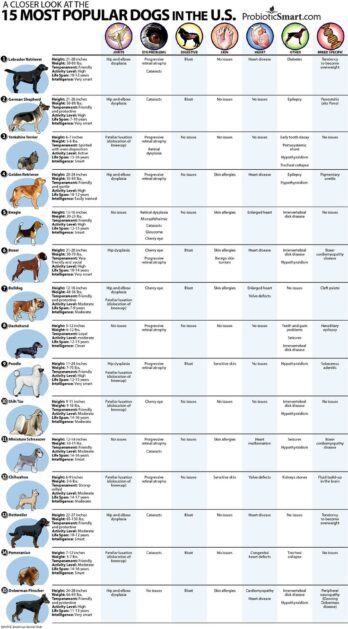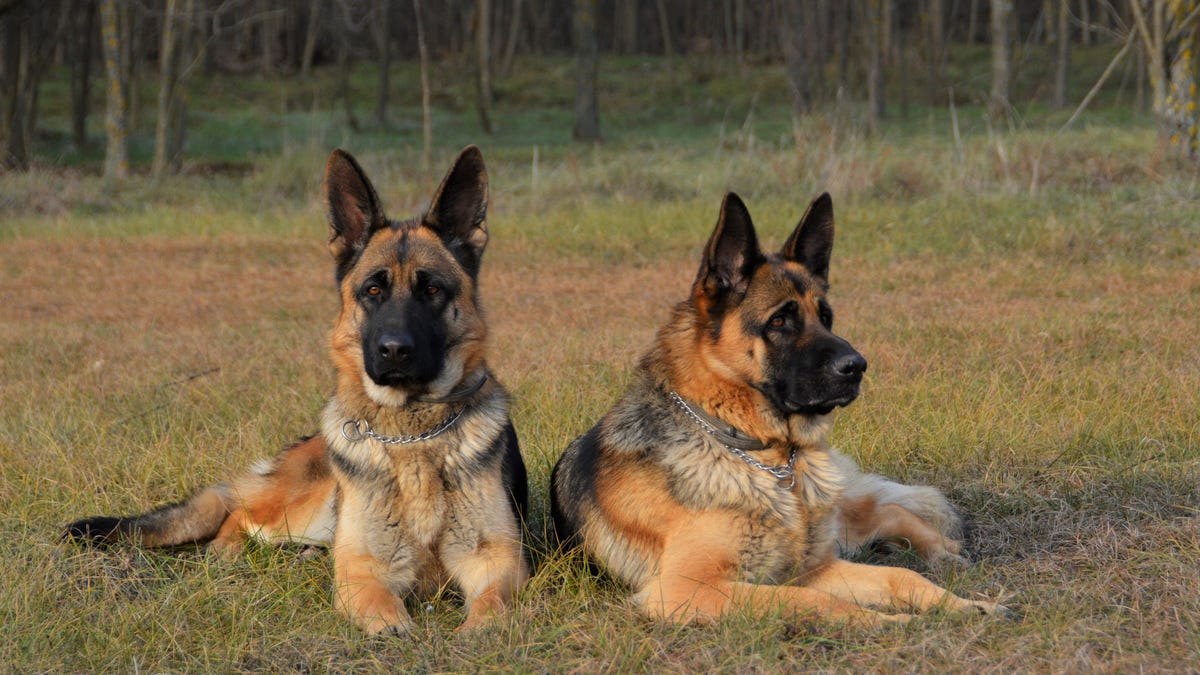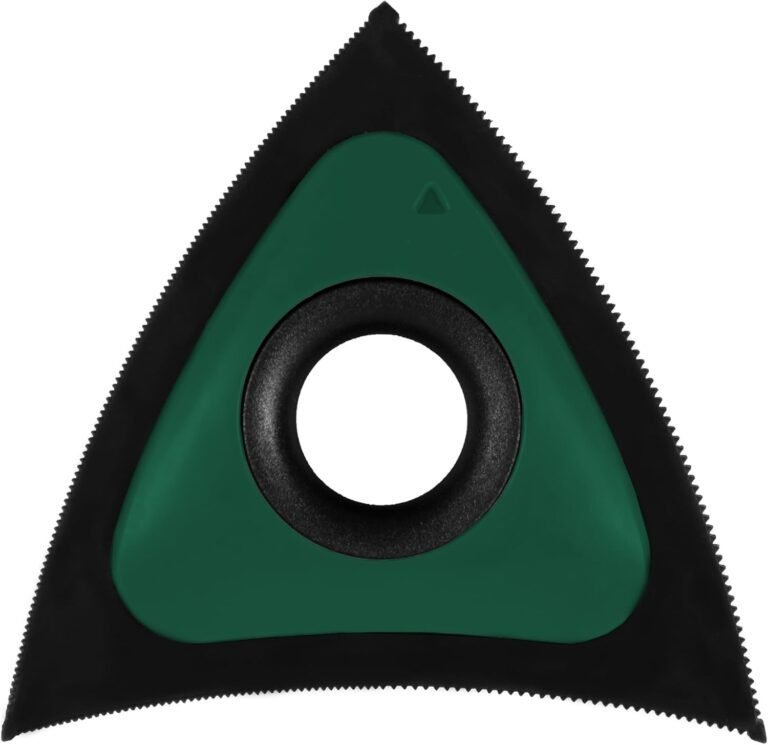
The top 15 most common dog health problems include ear infections, arthritis, dental disease, diarrhea, parasites, skin issues, urinary tract infections, canine dental problems, and obesity. Signs of dog sickness can include a decrease in appetite accompanied by weight loss, bad breath or foul odor, excessive thirst or urination, unexplained aggression or behavioral changes, and trouble walking or climbing stairs.
Dogs may hide when they’re sick to avoid predators, while it’s not unusual for dogs to grieve the loss of their favorite person. Some specific health issues in large dogs include aortic stenosis and bloat. Certain breeds are more prone to diseases like cancer and diabetes.
Common dog illnesses include cancer, ear infections, and joint injuries.

Understanding Dog Health Problems
Dog health problems are a common concern for pet owners. Just like humans, dogs can experience a range of health issues that may require medical attention. It’s important for dog owners to be aware of the most common health problems that dogs face, as early detection and treatment can greatly improve the outcome for our furry friends.
Signs Of Dog Sickness
Recognizing the signs of sickness in dogs is crucial for early intervention. Here are some common signs that your dog may be sick:
- Decrease in appetite accompanied by weight loss
- Bad breath or foul odor coming from the ears or skin
- Excessive thirst or urination
- Unexplained aggression or other behavioral changes
- Trouble walking or climbing stairs
- Inability to urinate or have bowel movements
Why Dogs Hide When They’re Sick
Dogs have an innate instinct to hide when they are sick. This behavior can be traced back to their wild ancestors who would seek out concealed resting places to avoid predators. In the wild, predators would target sick or injured animals as an easy source of food. So, when dogs are not feeling well, they will often try to find a safe and secluded spot to rest and recover.
Do Dogs Grieve The Loss Of Their Favorite Person
It is not uncommon for dogs to grieve the loss of a person they have bonded with. Dogs form strong attachments to their favorite person and losing them can be emotionally challenging. Just like humans, dogs can experience a range of emotions, including sadness and grief. They may exhibit signs of depression, loss of appetite, and changes in behavior when their favorite person is no longer around.
Common Dog Health Problems
The top 15 most common dog health problems include ear infections, arthritis, dental disease, diarrhea, parasites, skin issues, urinary tract infections, canine dental problems, and obesity. Other signs of dog sickness may include weight loss, bad breath, excessive thirst, behavioral changes, and difficulty walking.
Certain dog breeds are also more prone to specific health issues like autoimmune disorders, respiratory problems, eye problems, hip dysplasia, and back problems.
Obesity
Obesity is a common health problem in dogs that can have serious implications for their overall well-being. Just like humans, when dogs are overweight, it can put strain on their joints, leading to arthritis and other mobility issues. Additionally, obesity can increase the risk of developing other health conditions such as diabetes, heart disease, and respiratory problems.
It is important for dog owners to partner with their veterinarian to create a nutrition and exercise plan tailored to their dog’s needs. This plan should include a balanced diet, portion control, and regular physical activity to help the dog shed those extra pounds and maintain a healthy weight.
Dental Problems
Dental problems are a common issue among dogs, often caused by poor oral hygiene and neglect. Just like humans, dogs can suffer from dental diseases such as periodontal disease, tooth decay, and gum infections. These conditions can not only be painful for the dog but also lead to other health problems as bacteria from the mouth can enter the bloodstream and affect other organs.
Regular dental care, including brushing the dog’s teeth, providing dental chews or toys, and regular professional cleanings by a veterinarian, is crucial in maintaining good oral health for dogs. Early detection and treatment of dental problems can prevent further complications and ensure the dog’s overall well-being.
Skin Issues
Skin issues are another common health problem in dogs, often attributed to various factors such as allergies, parasites, fungal or bacterial infections, hormonal imbalances, or underlying medical conditions. Common skin problems in dogs include itching, redness, rashes, hot spots, hair loss, and dry or flaky skin.
Proper grooming and regular inspection of the dog’s skin are essential in identifying and addressing any skin issues. This may include regular baths with medicated shampoos, flea and tick prevention, dietary adjustments, and, in severe cases, medication prescribed by a veterinarian.
Ear Infections
Ear infections are a common health problem in dogs, especially those with floppy ears or excessive hair in the ear canals. Bacteria, yeast, or parasites can cause inflammation and infection in the ears, leading to symptoms such as itching, redness, odor, discharge, and shaking of the head.
Regular ear cleaning and proper hygiene can help prevent ear infections in dogs. This includes gently wiping the ears with an appropriate ear cleaning solution and cotton balls, and ensuring that the ears are thoroughly dried after swimming or bathing. If an ear infection occurs, prompt veterinary attention is necessary to diagnose the cause and administer appropriate treatment.
Arthritis
Arthritis is a common health problem affecting dogs, especially as they age. It is characterized by the inflammation of the joints, resulting in pain, stiffness, and reduced mobility. Large breeds and overweight dogs are particularly susceptible to developing arthritis.
Treatment for arthritis in dogs usually involves a combination of medication, weight management, exercise modifications, physical therapy, and joint supplements. It is important to consult with a veterinarian to create a tailored treatment plan to manage the symptoms and improve the quality of life for dogs suffering from arthritis.
Diarrhea
Diarrhea is a common health problem in dogs and can be caused by various factors such as dietary indiscretion, food allergies or intolerances, viral or bacterial infections, parasites, or underlying gastrointestinal issues. Diarrhea can lead to dehydration, weakness, and discomfort for dogs.
Mild cases of diarrhea can often be managed by withholding food for a short period and gradually reintroducing a bland diet. However, if the diarrhea persists or is accompanied by other concerning symptoms, it is important to seek veterinary assistance for proper diagnosis and treatment.
Parasites
Parasites are a common health problem in dogs, with fleas, ticks, and internal parasites being the most common culprits. These parasites can cause itching, skin irritation, anemia, and even transmit diseases to dogs.
Prevention and regular parasite control are crucial in safeguarding the health of dogs. This includes using appropriate flea and tick prevention products, regular deworming, and keeping the dog’s living environment clean and free from any potential sources of parasites.
Urinary Tract Infections
Urinary tract infections (UTIs) are a common health problem in dogs, especially in females. UTIs are caused by bacteria entering the urinary tract and can lead to symptoms such as frequent urination, pain or discomfort during urination, blood in the urine, and accidents in the house.
Proper hygiene, regular bathroom breaks, and providing ample fresh water can help prevent UTIs in dogs. If a UTI is suspected, it is important to consult with a veterinarian for diagnosis and appropriate treatment, which typically involves antibiotics.
Common Health Problems By Dog Breed
Dogs, like humans, can sometimes experience health problems that are specific to their breed. Certain breeds are more prone to developing particular health issues, which can range from respiratory problems to hip dysplasia. It’s important for dog owners to be aware of these common health problems in order to provide proper care and early detection. Let’s explore some of the most common health problems by dog breed:
Siberian Husky: Autoimmune Disorders
Siberian Huskies are known for their stunning appearance and energetic personalities. However, they are also prone to developing autoimmune disorders. These disorders occur when the dog’s immune system mistakenly attacks its own body tissues. This can manifest in various ways, such as allergies, skin problems, and thyroid issues. Regular check-ups with a veterinarian and a balanced diet can help manage these conditions and ensure the Siberian Husky’s well-being.
Bulldog: Respiratory Problems
Bulldogs have a distinct appearance with their wrinkled face and pushed-in nose. Unfortunately, these traits also make them prone to respiratory problems. The anatomy of their short muzzle and compacted airways can lead to difficulties in breathing, especially in extreme temperatures or during physical exertion. Owners should be cautious and take necessary precautions to prevent overheating and provide a well-ventilated environment for their Bulldogs.
Pug: Eye Problems
Pugs, with their adorable squished faces and large, expressive eyes, are a popular breed. However, their prominent eyes also make them more susceptible to eye problems. These can include dryness, corneal ulcers, and even genetic conditions like progressive retinal atrophy. It’s important for Pug owners to keep their eyes clean, use veterinarian-approved eye drops if recommended, and schedule regular eye examinations to detect and manage any potential issues.
German Shepherd: Hip Dysplasia
German Shepherds are often recognized for their agility, intelligence, and loyalty. However, they are commonly affected by hip dysplasia, a condition characterized by the malformation of the hip joint. This can lead to discomfort, lameness, and arthritis. Regular exercise, controlled weight management, and a proper diet can help minimize the potential impact of hip dysplasia in German Shepherds. Early detection through regular hip evaluations is crucial for implementing appropriate interventions.
Labrador Retriever: Hip And Joint Issues
Labrador Retrievers are known for their friendly and outgoing nature, making them a popular choice for families. However, they have a higher risk of developing hip and joint issues, such as hip dysplasia and osteoarthritis. These conditions can cause pain, stiffness, and decreased mobility. Owners should ensure their Labradors maintain a healthy weight, engage in regular exercise, and consider joint supplements or medications as recommended by their veterinarian.
Dachshund: Back Problems
Dachshunds, also known as Wiener dogs, have long bodies and short legs, which contribute to their unique appearance. However, their elongated spinal structure puts them at risk for back problems, including intervertebral disc disease. This can result in pain, paralysis, and even loss of bladder control. It’s important for Dachshund owners to take precautions to prevent jumping from heights, provide support during activities, and be aware of any signs of back pain or mobility issues.
Large Dog Breeds: Aortic Stenosis And Bloat
| Large Dog Breeds | Aortic Stenosis | Bloat (Gastric Dilatation-Volvulus) |
|---|---|---|
| Great Dane | ✔ | ✔ |
| Rottweiler | ✔ | ✔ |
| St. Bernard | ✔ | ✔ |
| Irish Wolfhound | ✔ | ✔ |
Large dog breeds, including the Great Dane, Rottweiler, St. Bernard, and Irish Wolfhound, are at a higher risk of developing certain health problems. Aortic stenosis is a congenital heart condition that restricts blood flow, causing additional strain on the heart. Bloat, or gastric dilatation-volvulus, is a life-threatening condition characterized by the abnormal twisting and distention of the stomach. Owners should monitor their large dogs for symptoms such as lethargy, difficulty breathing, and a distended abdomen, and seek immediate veterinary attention if these symptoms occur.
Being aware of the common health problems by dog breed is essential for dog owners. It allows them to provide the necessary care, take preventive measures, and seek prompt veterinary attention when needed. Remember, a happy and healthy dog starts with proper knowledge and proactive care.

Dog Breeds Prone To Health Problems
While all dogs are prone to specific health issues, some breeds have a higher risk of developing certain conditions. Being aware of these breed-specific health problems can help dog owners take proactive measures to keep their furry friends healthy and happy.
Breeds With Higher Risk Of Cancer And Diabetes
Cancer is a devastating disease that affects both humans and animals. Unfortunately, certain dog breeds have a higher predisposition to various types of cancer. These breeds include:
- Golden Retrievers
- Labrador Retrievers
- Bernese Mountain Dogs
- Boxers
- Rottweilers
Beyond cancer, certain breeds also have an elevated risk of developing diabetes. These breeds include:
- Pomeranians
- Cairn Terriers
- Beagles
- Dachshunds
- Australian Terriers
Dog owners of these breeds should be vigilant and watch for any unusual symptoms, such as sudden weight loss, increased thirst, or changes in appetite. Regular check-ups with a veterinarian are crucial to catch any health issues early on.
Most Common Dog Illnesses
As a responsible dog owner, it’s essential to be aware of the most common dog illnesses that can affect your furry friend’s health. By understanding these common health problems, you can take proactive measures to prevent them or seek timely veterinary care if needed. Below, we discuss some of the most prevalent dog illnesses and provide insight into their causes, symptoms, and treatment options.
Ear Infections
Ear infections are a common health issue in dogs, especially those with floppy ears or excessive hair in the ear canal. These infections can be caused by bacteria, yeast, allergies, or parasites. Some common signs of ear infections include frequent scratching of the ears, head shaking, redness, swelling, and a foul odor. It’s crucial to seek veterinary care if your dog exhibits these symptoms, as untreated ear infections can lead to more severe complications.
Parvovirus
Parvovirus, also known as Parvo, is a highly contagious viral infection that mainly affects puppies and unvaccinated dogs. The virus primarily attacks the gastrointestinal tract and can cause severe vomiting, diarrhea (often bloody), lethargy, loss of appetite, and dehydration. Parvovirus requires immediate veterinary attention, as it can be life-threatening if left untreated.
Joint Injuries
Joint injuries, including conditions like arthritis and hip dysplasia, are prevalent in dogs, especially as they age. Arthritis occurs when the cartilage protecting the joints wears down, leading to stiffness, pain, and reduced mobility. Hip dysplasia is a genetic condition that affects the hip joints, causing abnormal development and inflammation. Both conditions can significantly impact a dog’s quality of life and require proper management, including medication, physical therapy, and weight management.
Cancer
Cancer can affect dogs of all breeds and ages, just like humans. The most common types of cancer in dogs include skin cancer, lymphoma, mammary gland tumors, and bone cancer. Symptoms vary depending on the type and location of the tumor but may include lumps or masses, unusual bleeding, weight loss, changes in appetite, and lethargy. Early detection, prompt treatment, and regular veterinary check-ups are crucial in combating cancer in dogs.
Swallowing Foreign Objects
Dogs have a notorious habit of ingesting foreign objects, which can lead to gastrointestinal obstructions. Common items that dogs swallow include bones, toys, socks, and rocks. Symptoms of a swallowed foreign object may include vomiting, diarrhea, abdominal pain, loss of appetite, and lethargy. In severe cases, surgery may be necessary to remove the obstruction, highlighting the importance of preventing your dog from accessing potential hazards.
Lameness
Lameness refers to difficulty or abnormality in a dog’s ability to walk or move. This condition can be caused by various factors, such as injuries, musculoskeletal disorders, nerve damage, or degenerative joint diseases. Lameness can manifest as limping, favoring a particular leg, reluctance to exercise, or difficulty in climbing stairs. It’s essential to have your dog evaluated by a veterinarian to determine the underlying cause of lameness and develop an appropriate treatment plan.
Intestinal Problems
Intestinal problems, such as gastroenteritis, colitis, and inflammatory bowel disease, are common in dogs. These conditions can result from various causes, including dietary indiscretion, bacterial or viral infections, food allergies, or underlying health conditions. Symptoms may include diarrhea, vomiting, abdominal pain, bloating, and weight loss. Proper diagnosis and treatment are necessary to alleviate the symptoms and restore your dog’s digestive health.
Periodontal Disease
Periodontal disease refers to an infection and inflammation of the gums and tissues surrounding the teeth. It is one of the most common dental problems in dogs and can lead to tooth loss, pain, and systemic infections if left untreated. Signs of periodontal disease include bad breath, red or swollen gums, tartar buildup, and difficulty eating. Regular dental care, including professional cleanings and at-home oral hygiene, is crucial to maintaining your dog’s dental health.
Allergies
Allergies in dogs can be caused by environmental factors, such as pollen or dust mites, or certain foods. Common signs of allergies include itching, excessive scratching, hair loss, redness, skin rashes, and recurrent ear infections. Identifying and managing the allergen through allergy testing, dietary changes, or medication can significantly improve your dog’s quality of life.
Urinary Tract Infections
Urinary tract infections (UTIs) are more common in female dogs and can cause discomfort and inconvenience. Symptoms of UTIs may include frequent urination, straining while urinating, blood in the urine, urine accidents, and an unusual odor. Prompt veterinary care, along with proper hygiene and proactive measures, can help prevent and treat UTIs effectively.
Prevention And Solutions
Preventing and addressing dog health problems is crucial to ensuring the well-being of your furry friend. By taking prompt action, scheduling regular vet check-ups, practicing proper nutrition and exercise, maintaining good dental hygiene, and preventing parasites, you can significantly improve your dog’s overall health. Let’s delve into each of these prevention and solution methods:
Taking Prompt Action
If you notice any signs of illness or behavioral changes in your dog, it’s essential to take prompt action. This includes seeking veterinary attention for symptoms such as a decrease in appetite accompanied by weight loss, bad breath or foul odors from the ears or skin, excessive thirst or urination, unexplained aggression, trouble walking or climbing stairs, or difficulty urinating or having bowel movements.
Regular Vet Check-ups And Vaccinations
To keep your dog in optimal health, it’s important to schedule regular vet check-ups. Vet visits allow proactive identification and prevention of potential health issues. In addition, keeping up with essential vaccinations is crucial in protecting your dog against various diseases and infections.
Proper Nutrition And Exercise
Ensuring that your dog receives proper nutrition and regular exercise is essential in preventing common health problems. Obesity, for instance, can have detrimental effects on a dog’s movement and overall well-being. Collaborate with your veterinarian to develop a nutrition and exercise plan tailored to your dog’s specific needs.
Good Dental Hygiene
Poor dental hygiene can lead to dental diseases such as periodontal disease, which can have a significant impact on your dog’s overall health. To maintain good dental hygiene, regularly brush your dog’s teeth with vet-approved toothpaste and provide dental chews or toys that assist in removing plaque build-up.
Preventing Parasites
Parasites, such as fleas, ticks, and heartworms, can cause various health issues in dogs. To prevent parasites, ensure your dog is on a regular preventative medication regimen recommended by your veterinarian. Regularly check your dog’s fur for signs of infestation, especially during peak parasite seasons.
Managing Weight
Obesity is a prevalent health issue among dogs, leading to various complications. Partner with your veterinarian to create a nutrition and exercise plan to help your dog lose excess weight. This will not only improve their mobility but also reduce the risk of joint problems and other obesity-related health issues.
By following these preventive measures and taking prompt action when necessary, you can significantly minimize the occurrence of common dog health problems. The well-being and longevity of your furry friend are in your hands.

Credit: www.facebook.com
Frequently Asked Questions On Top 15 Most Common Dog Health Problems
What Is The #1 Health Problem Amongst Dogs?
The number one health problem amongst dogs is obesity. Being overweight can affect a dog’s movement and overall health. It is important to partner with your veterinarian to create a nutrition and exercise plan to help your dog lose extra weight.
What Are Signs Of Dog Sickness?
Signs of dog sickness include decreased appetite and weight loss, bad breath or foul odor from ears or skin, excessive thirst or urination, unexplained aggression or behavioral changes, trouble walking or climbing stairs, and inability to urinate or have bowel movements.
Why Do Dogs Hide When They’re Sick?
Dogs hide when they’re sick because in the wild, ill animals instinctively avoid predators by finding concealed resting places. Predators prefer to hunt sick or injured animals that can’t fight back.
Do Dogs Get Sad When Their Favorite Person Leaves?
Yes, dogs can experience sadness when their favorite person leaves. Dogs form strong bonds with their owners, so they may feel a sense of loss and display signs of sadness, such as decreased energy or appetite.
Conclusion
Understanding the most common health problems that dogs face is crucial for responsible pet ownership. From ear infections to obesity, dental disease to joint issues, being aware of these conditions can help you take preventive measures and seek timely treatment.
Remember to partner with your veterinarian for expert guidance on nutrition, exercise, and overall healthcare for your beloved furry companion. By prioritizing your dog’s health, you can ensure their happiness and well-being for years to come.





